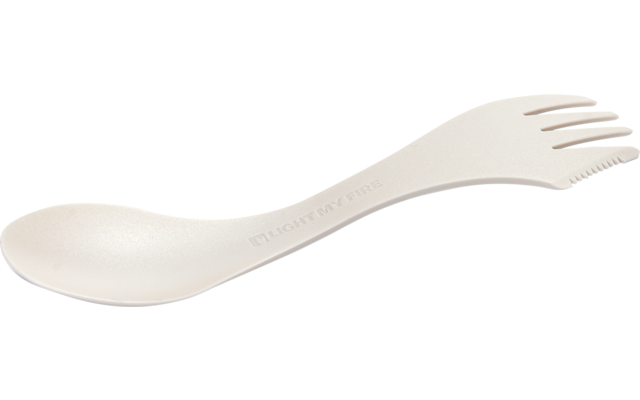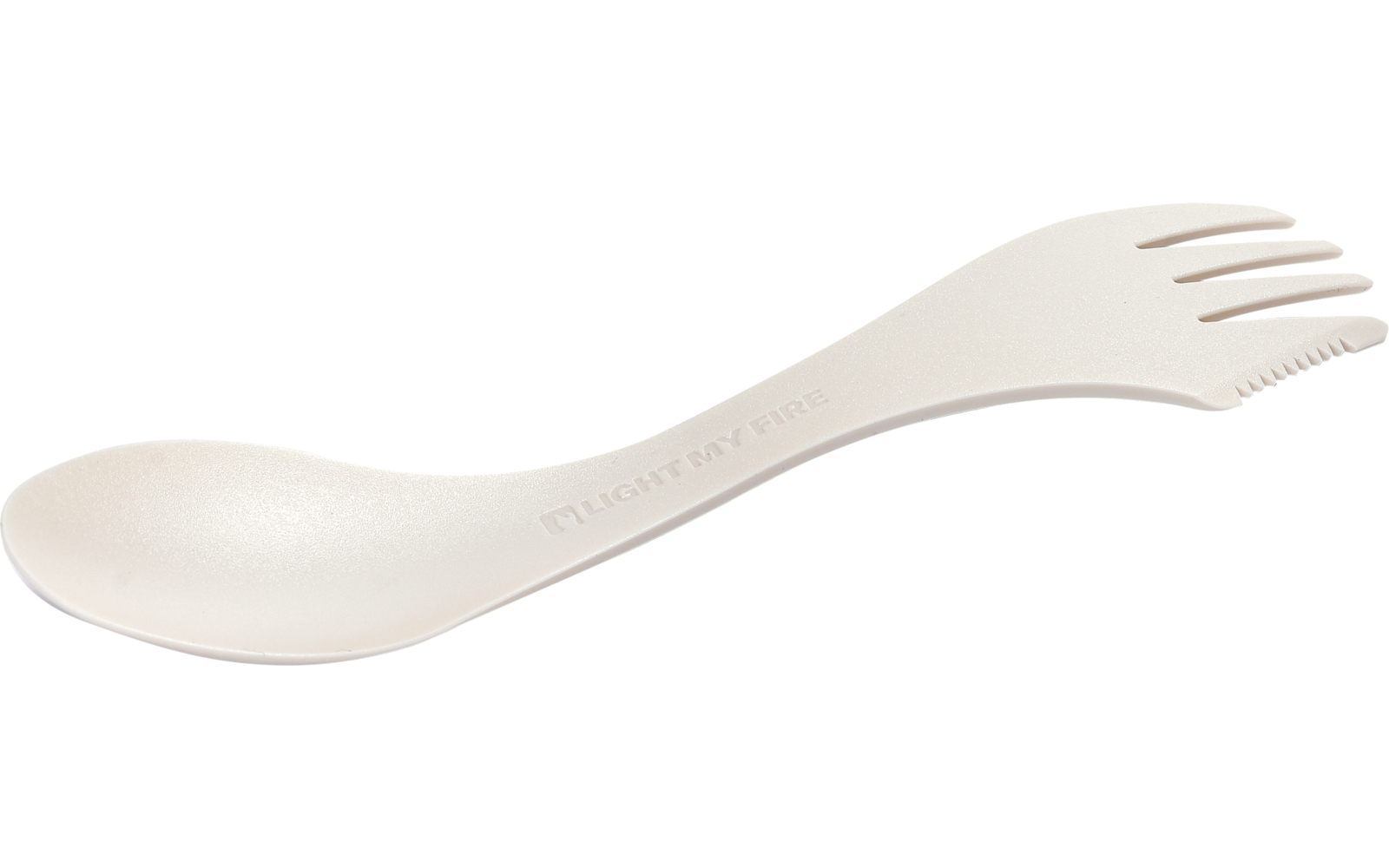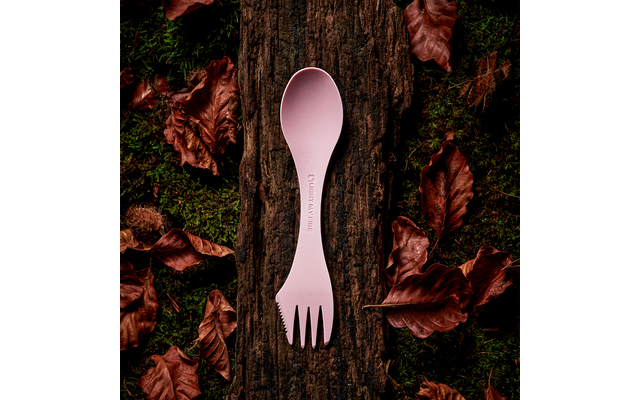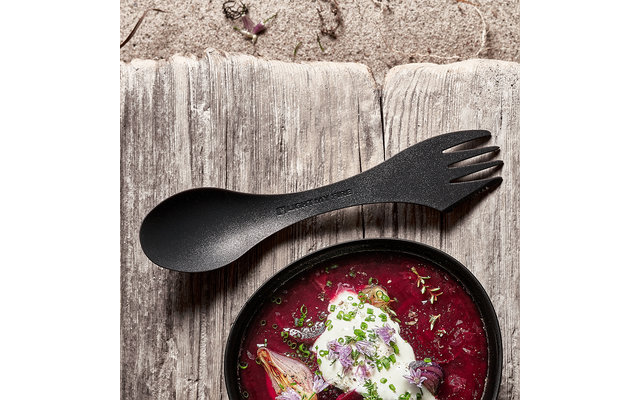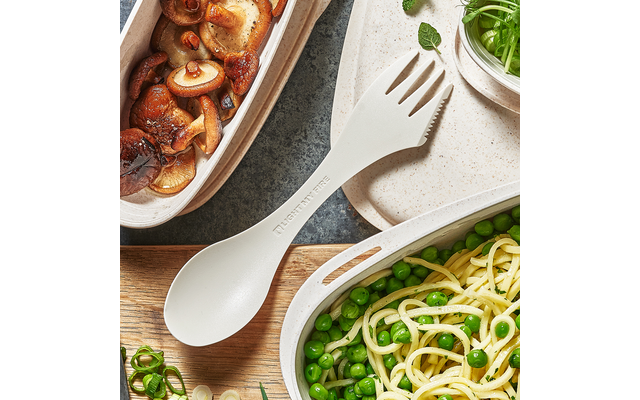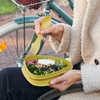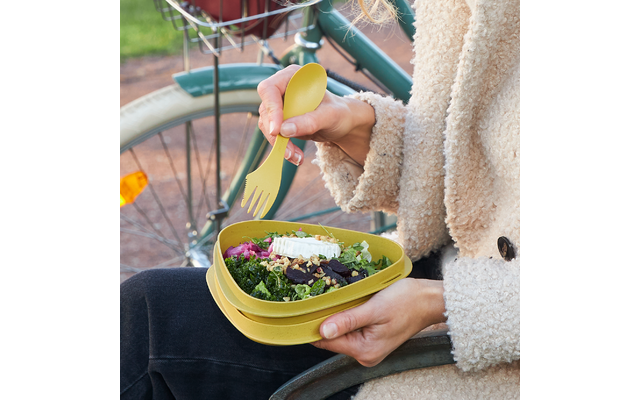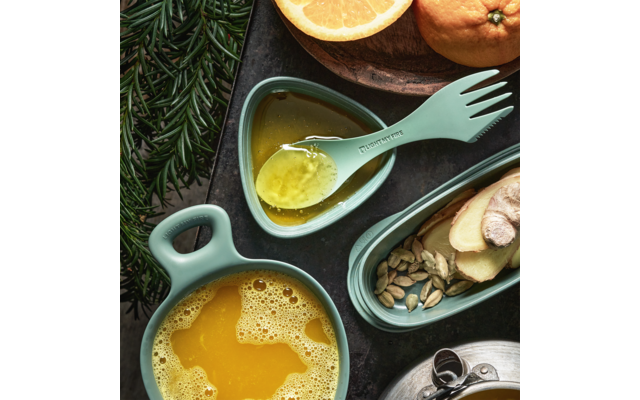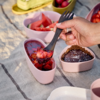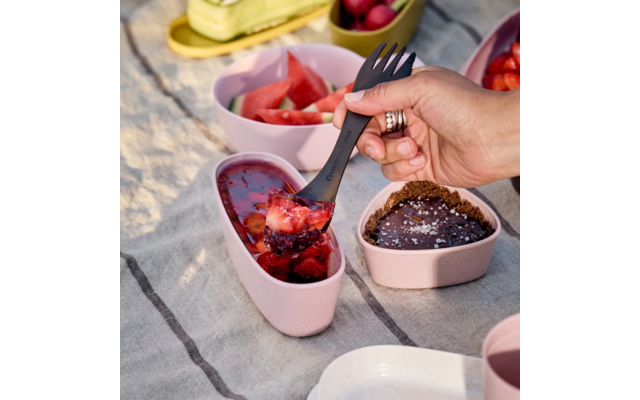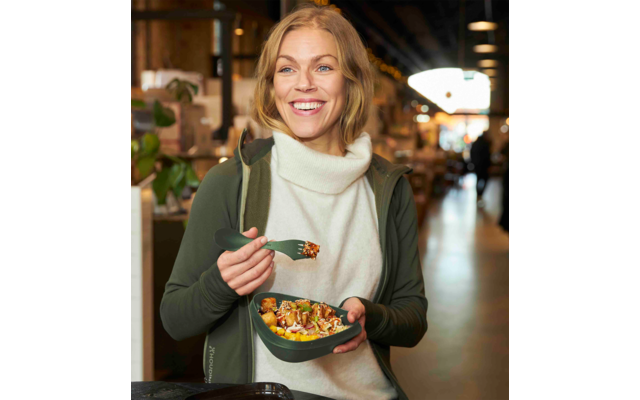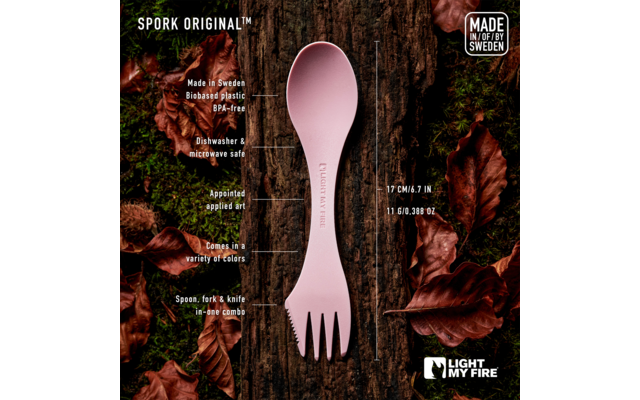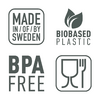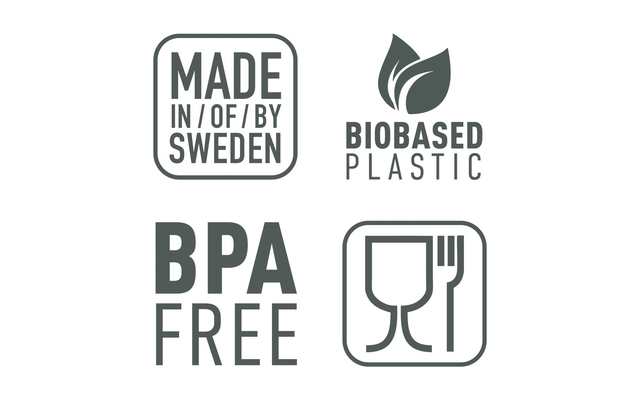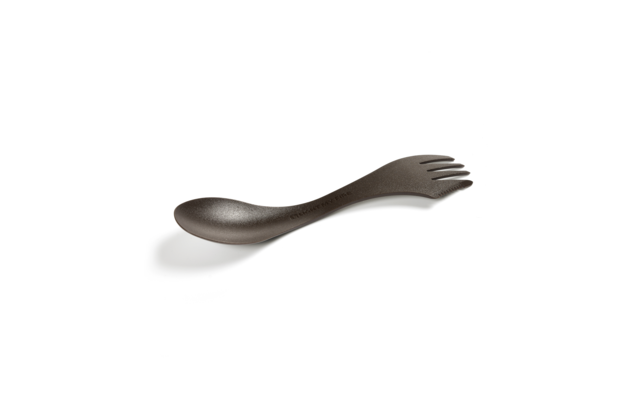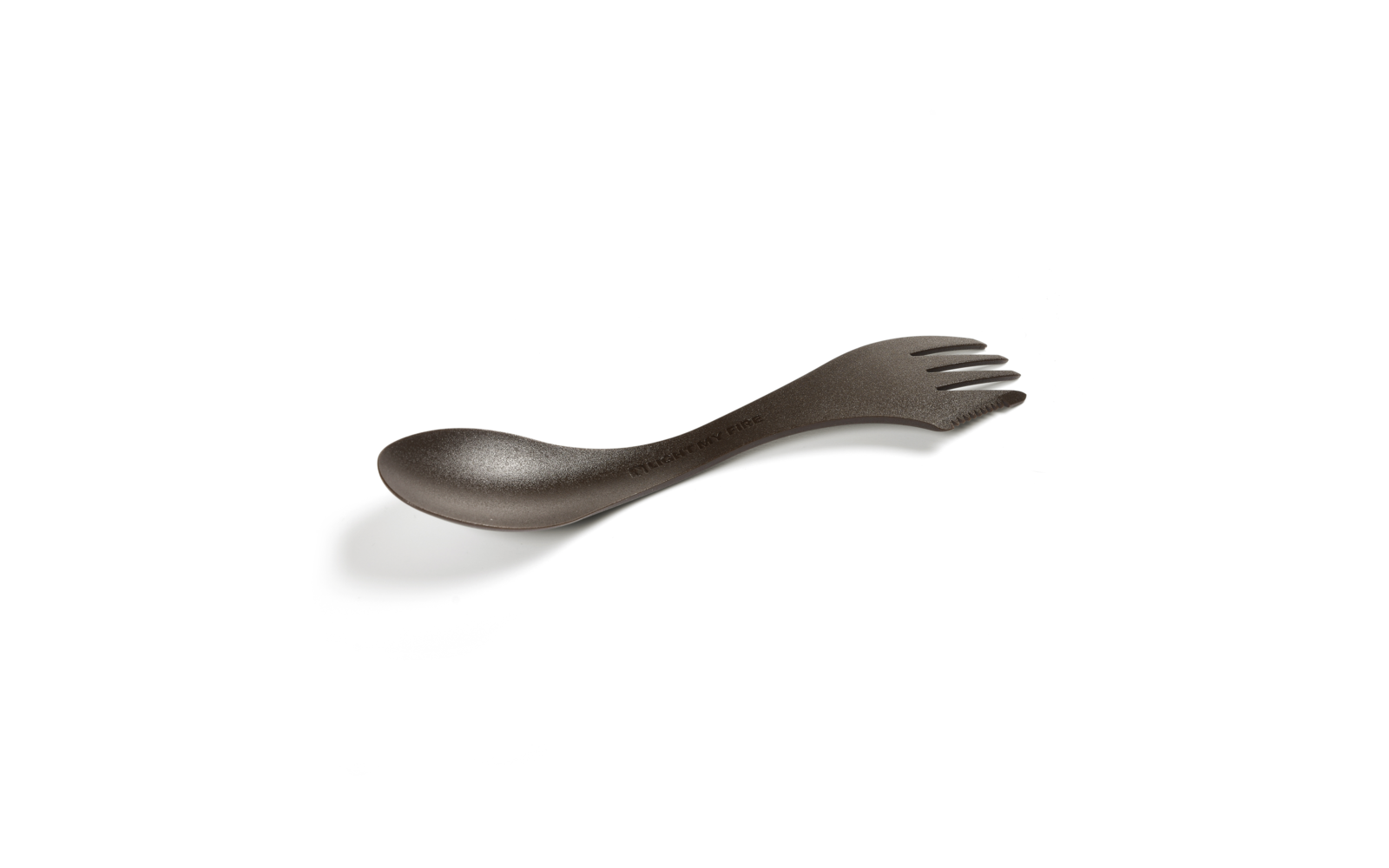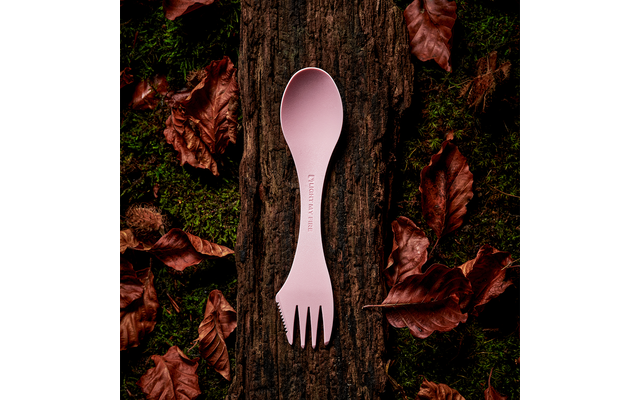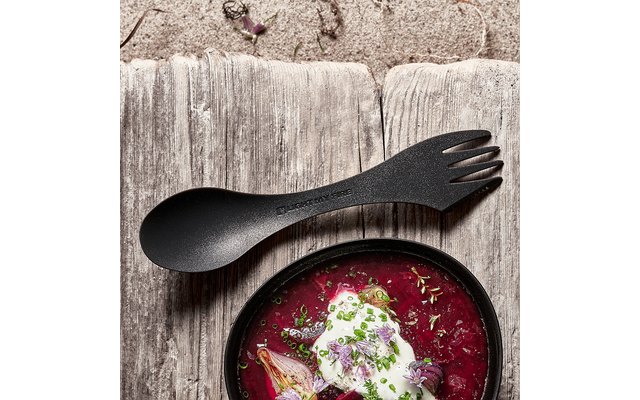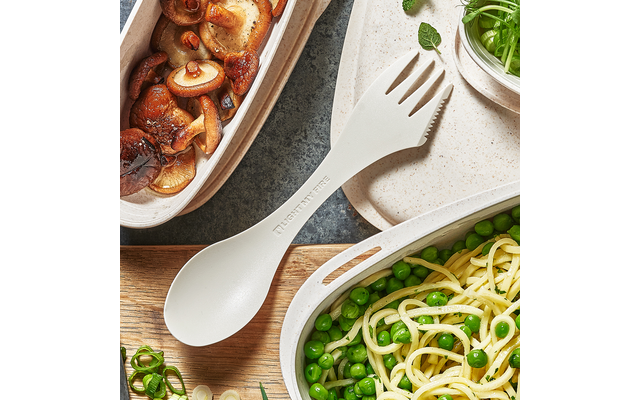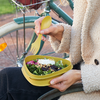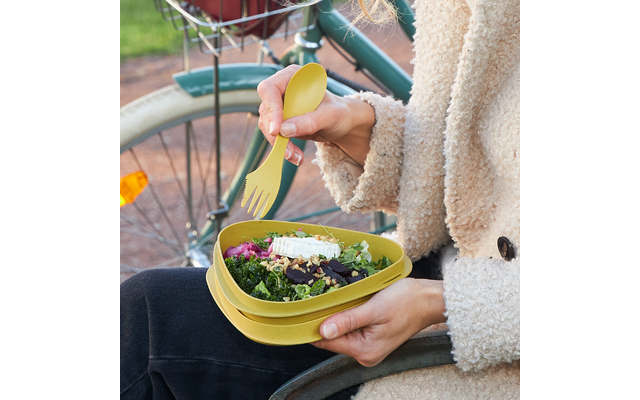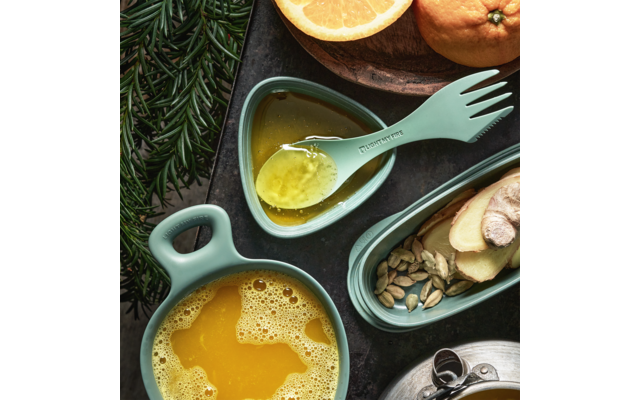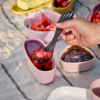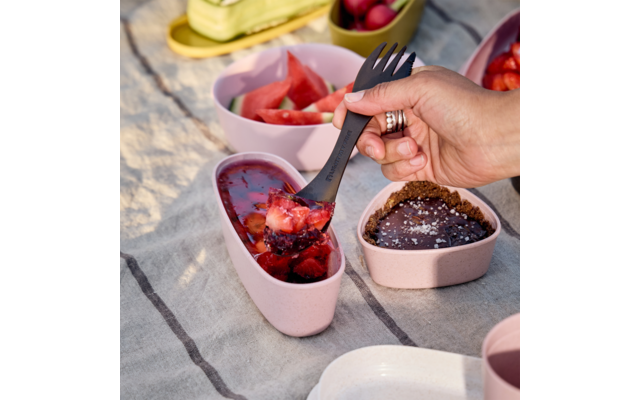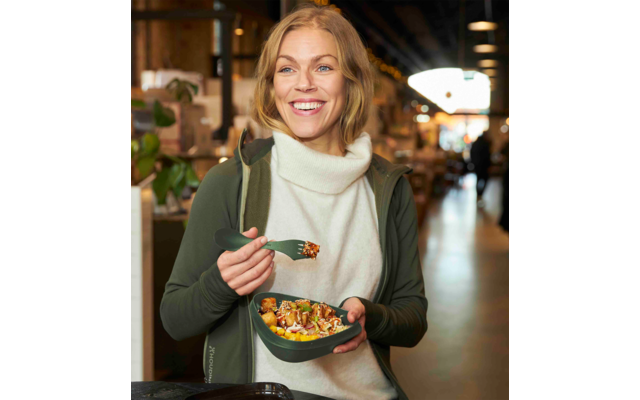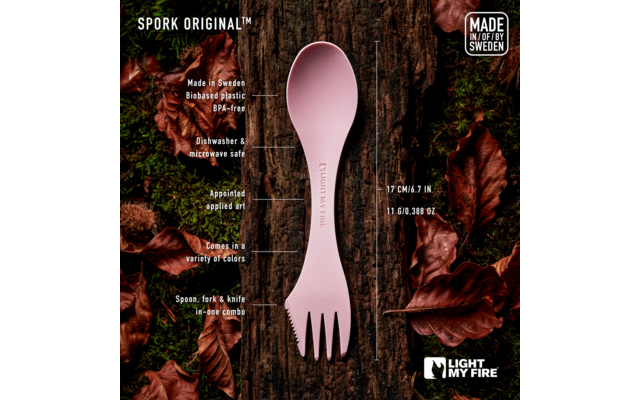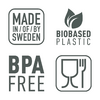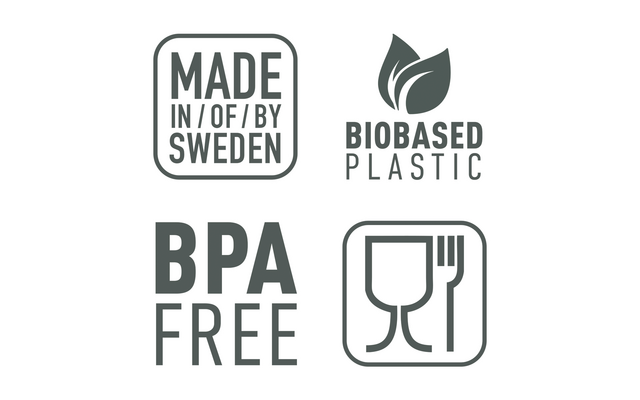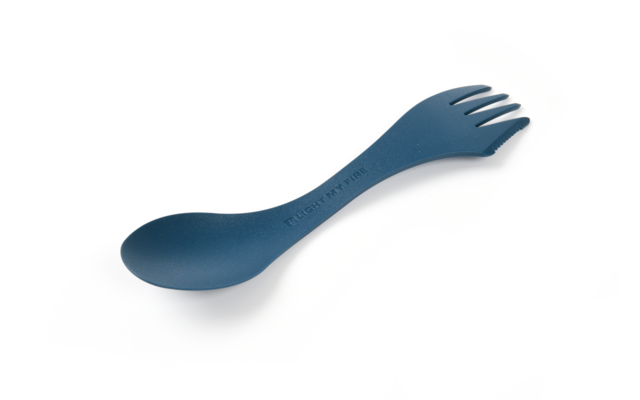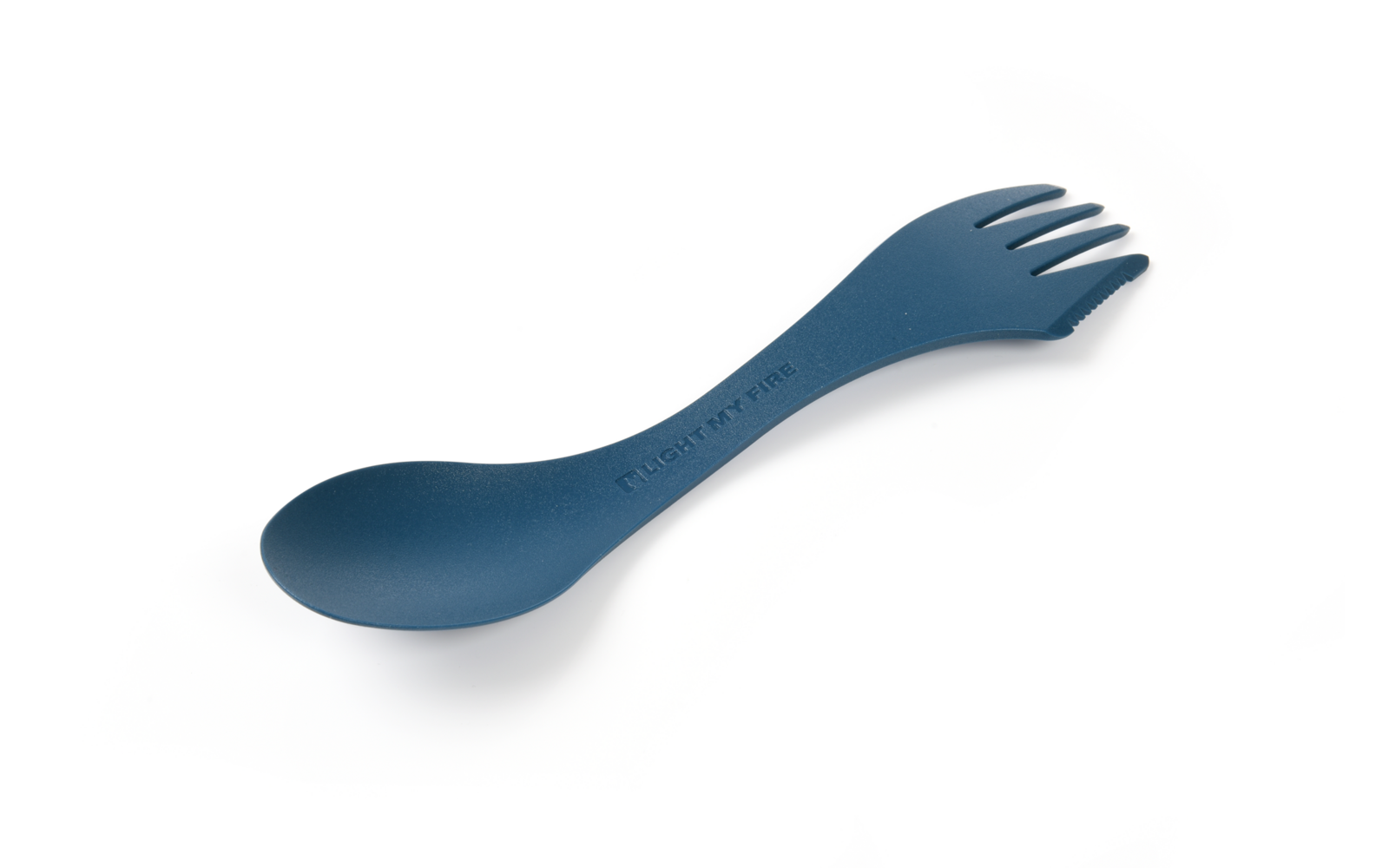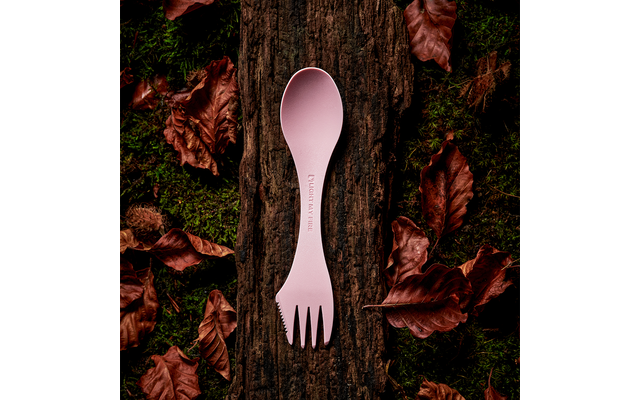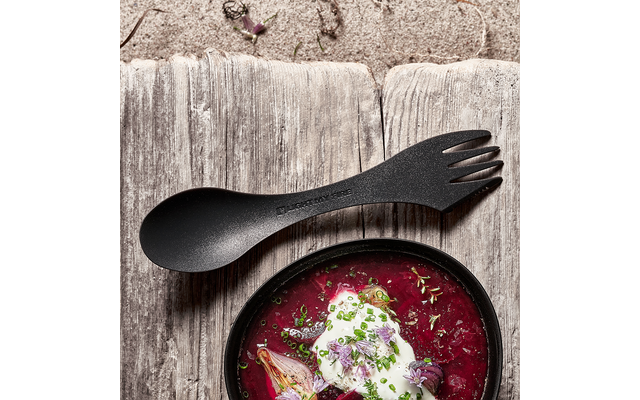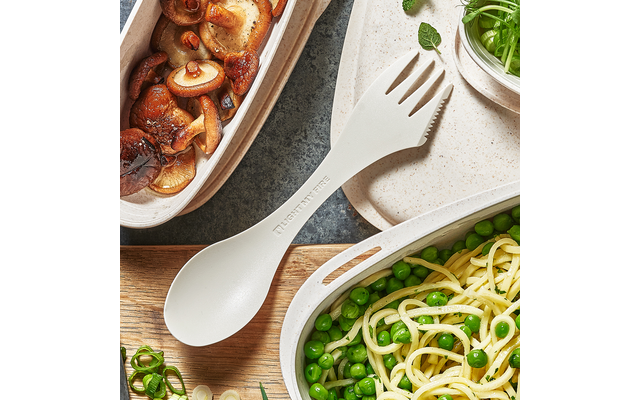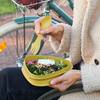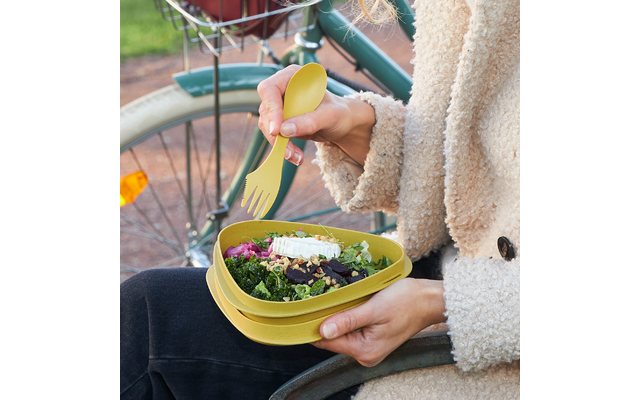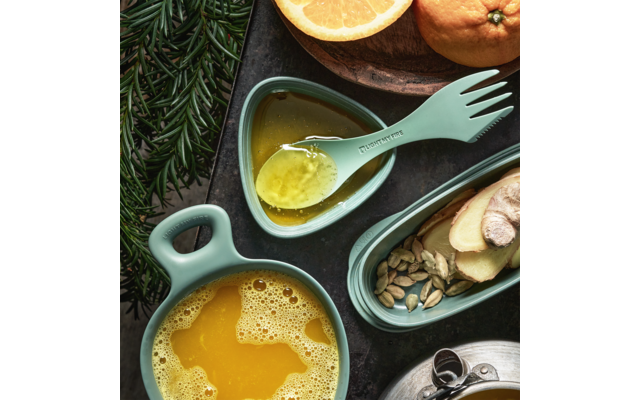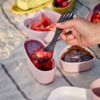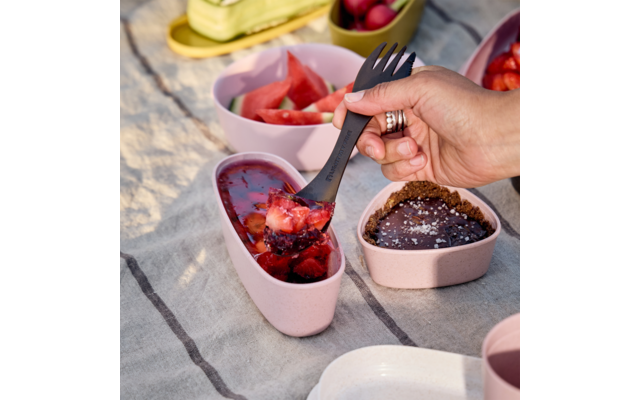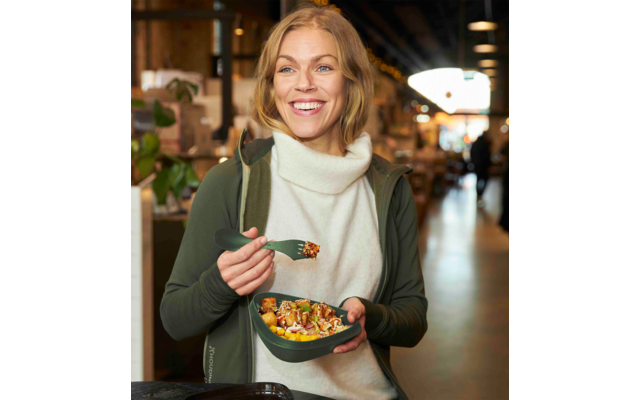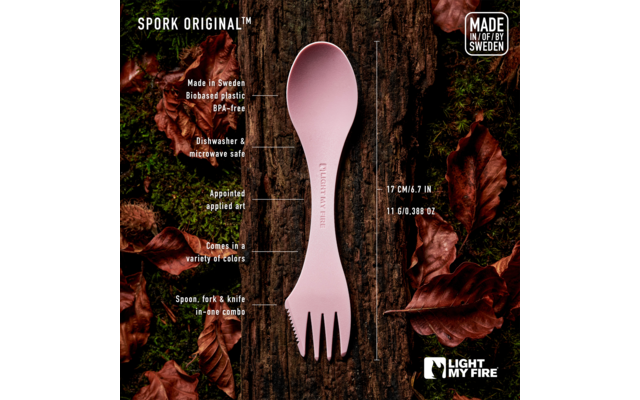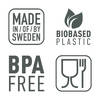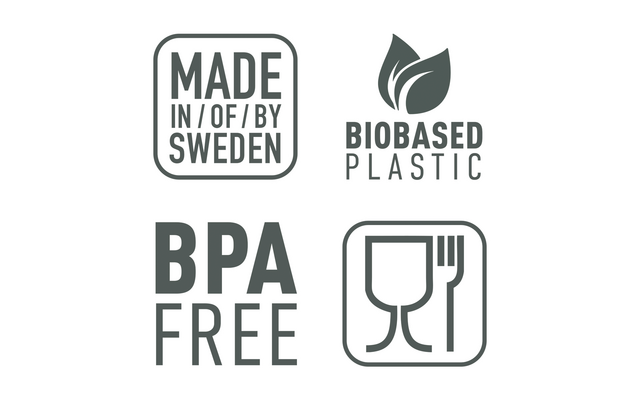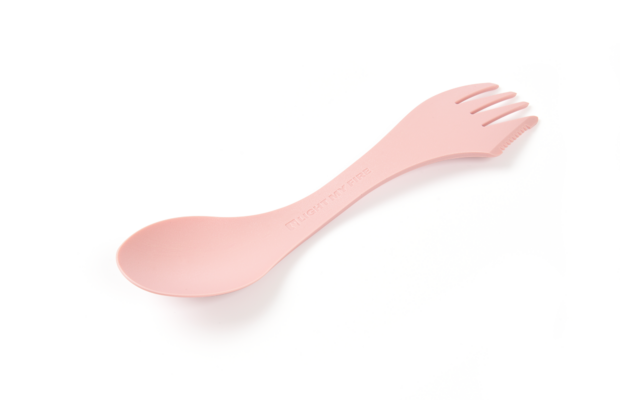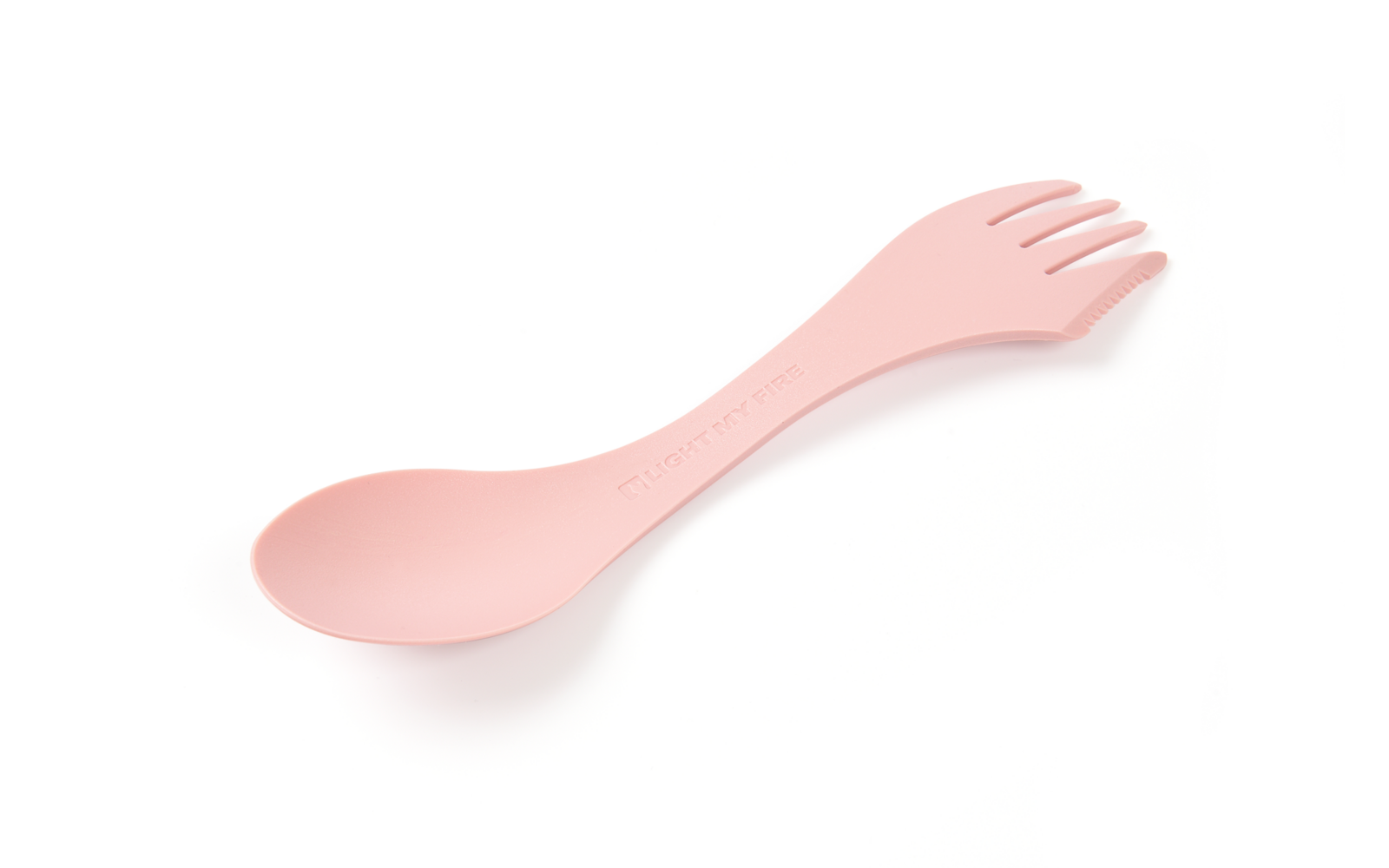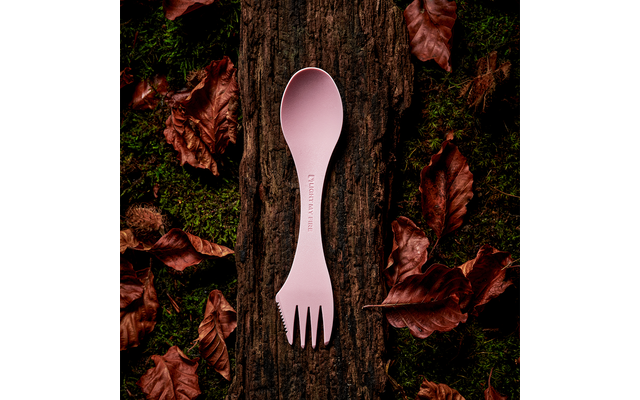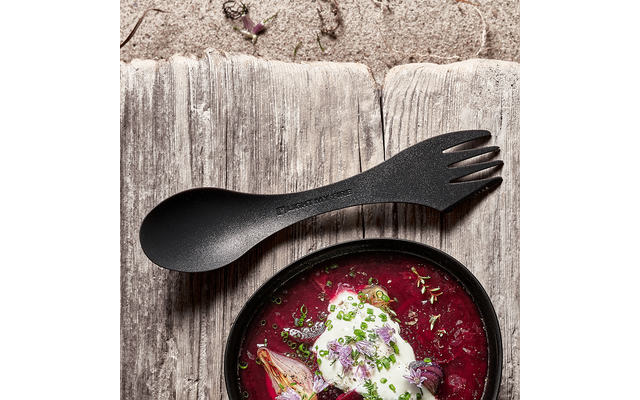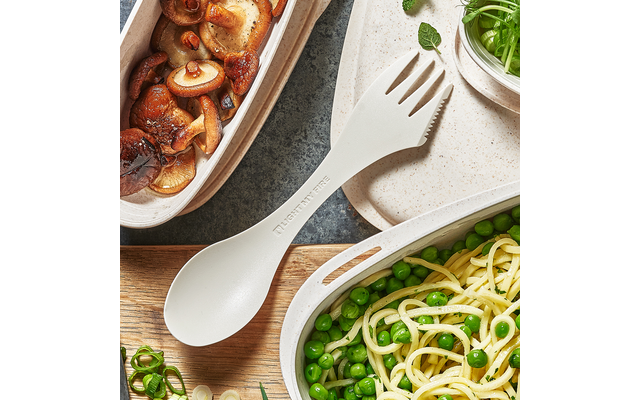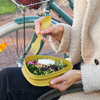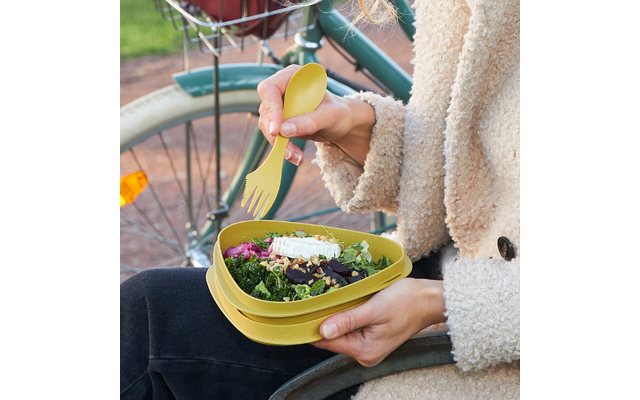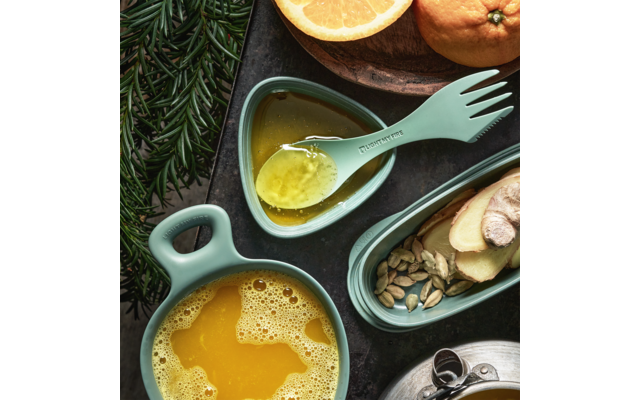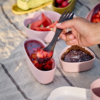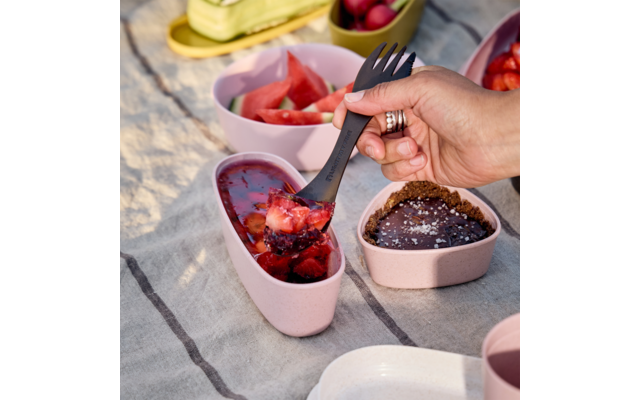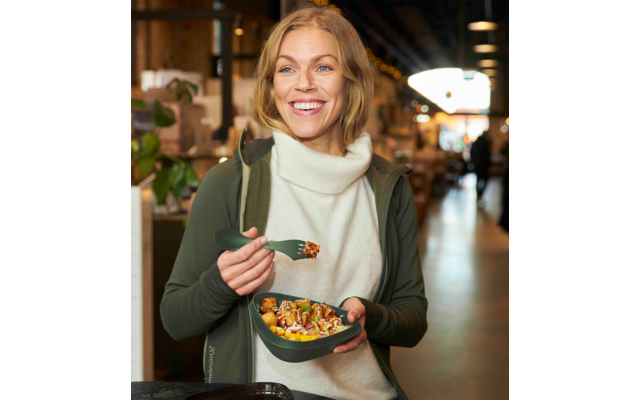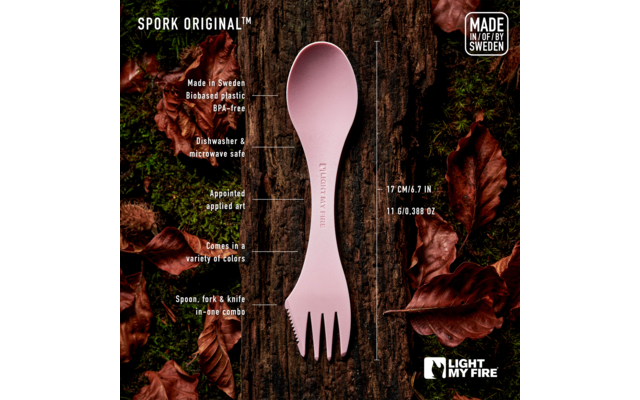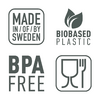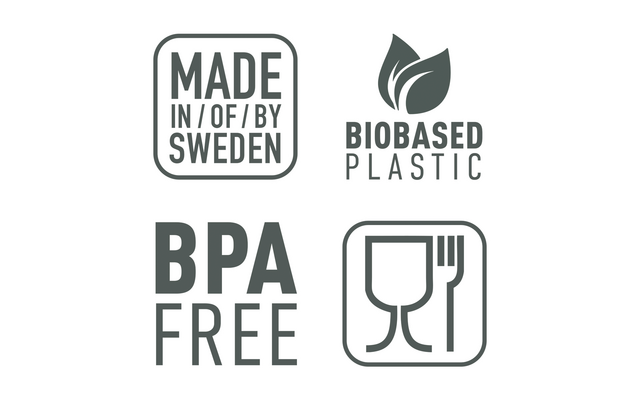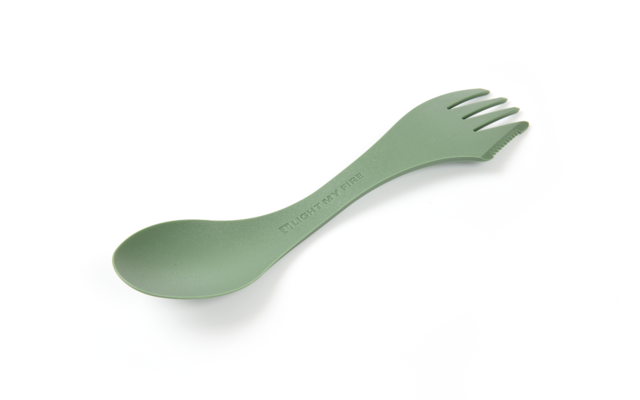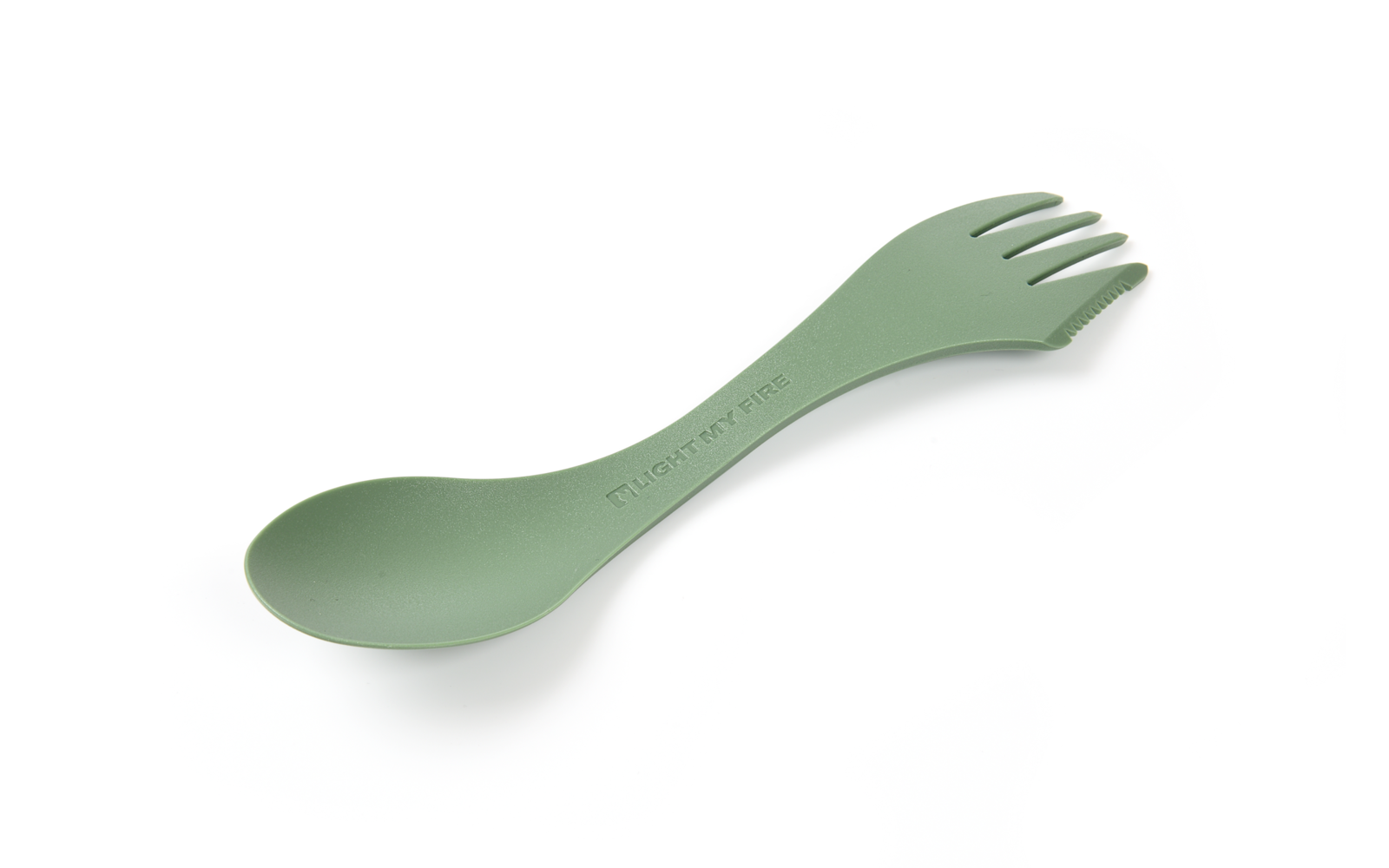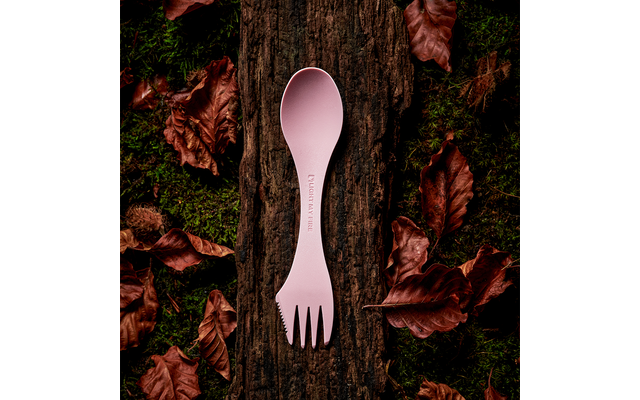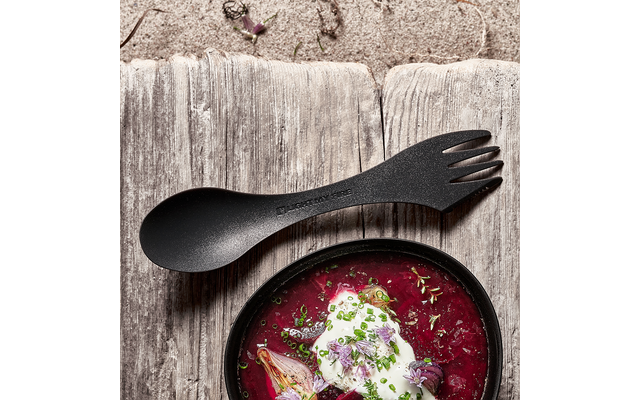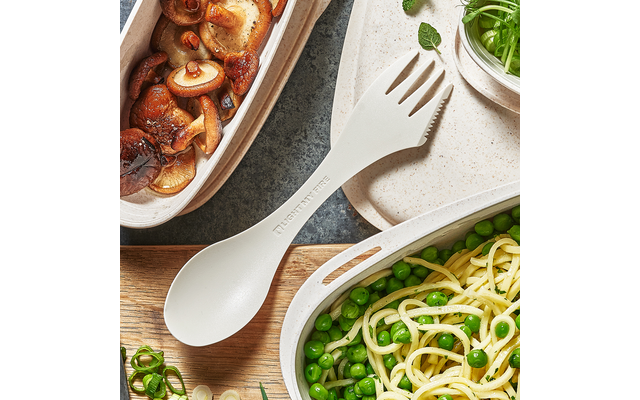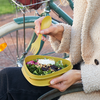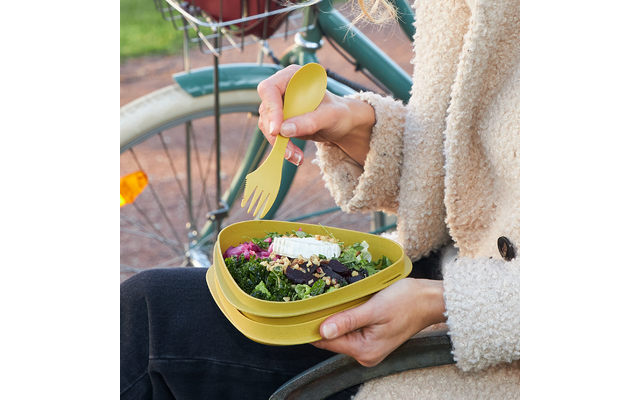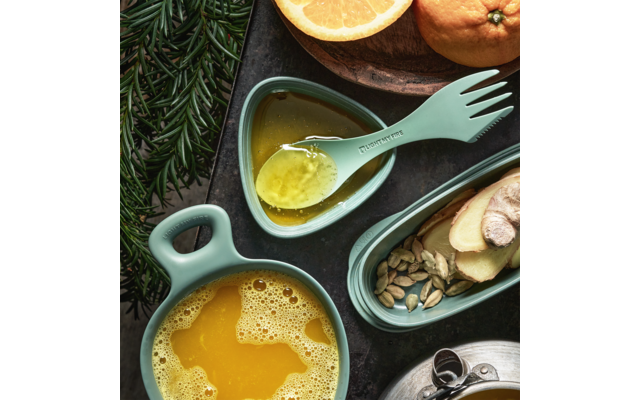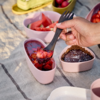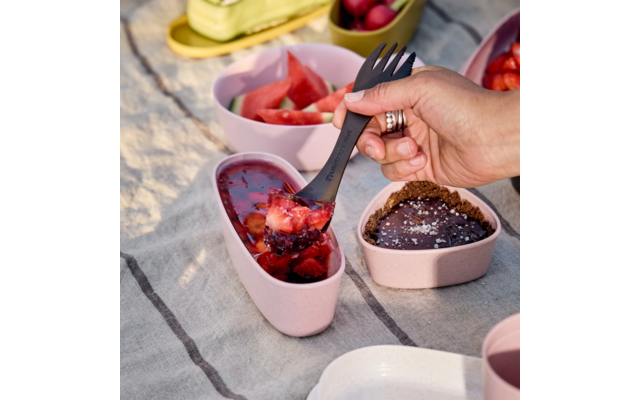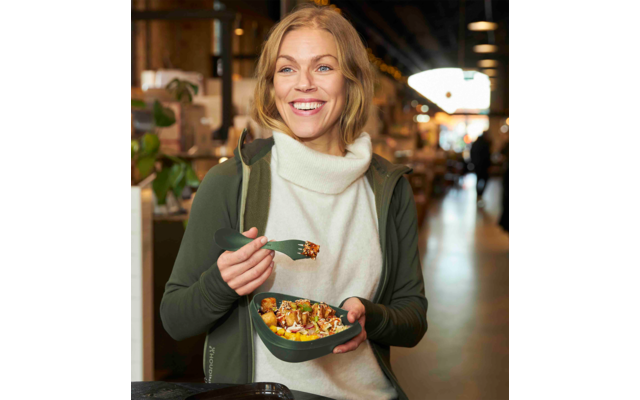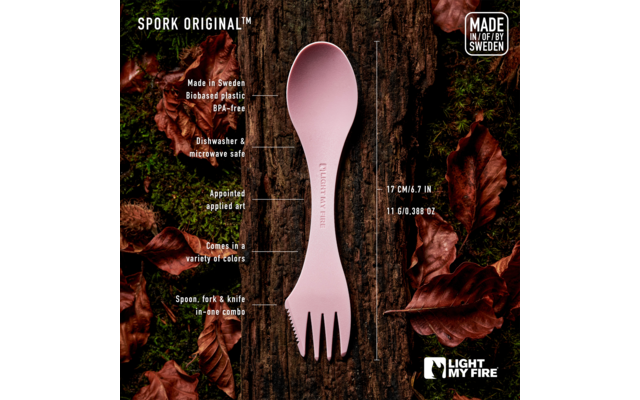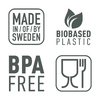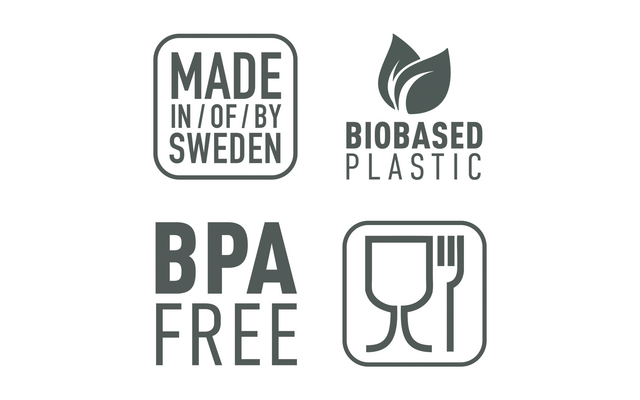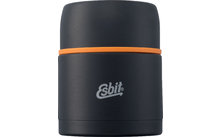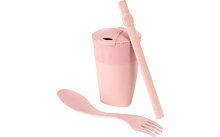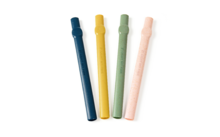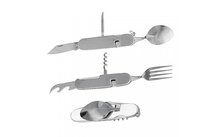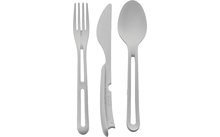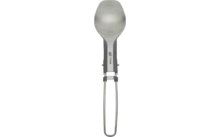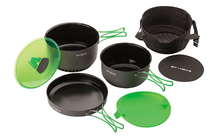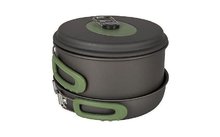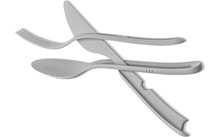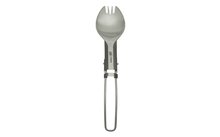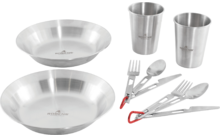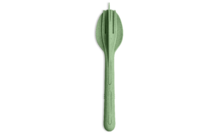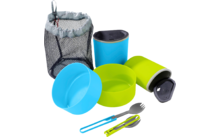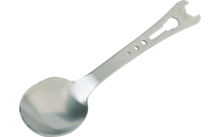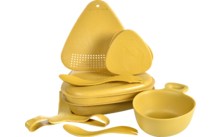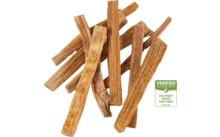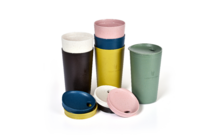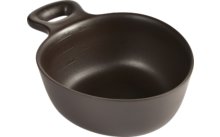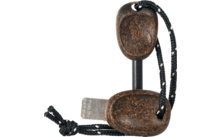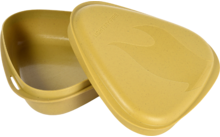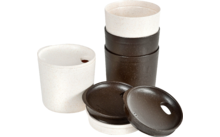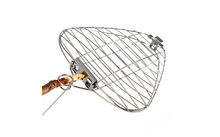Light My Fire Spork Original organic cutlery creamLight My Fire Spork Original organic cutlery cocoaLightMyFire Spork Original Bioplastic Cutlery HazyblueLightMyFire Spork Original Bioplastic Cutlery DustypinkLightMyFire Spork Original Bioplastic Cutlery Sandygreen
Product details
| Bioplastics - the alternative to single-use plastics | dishwasher safe |
| environmentally friendly and sustainable | BPA-free |
Product description
Bioplasty - the alternative to disposable plastic
! In the production of Light My Fire products, renewable raw materials such as certified corn, sugar cane or wood are used and petroleum is not used. This not only gives the products their unique colour and structure, but is also particularly environmentally friendly, as biomass is CO2-neutral. Please note: Bio-plastic is not compostable.
Features
| Microwave-safe | - |
| Dishwasher-safe | |
| Weight | 0,033 kg |
| Material | Bioplastics |
| Design | original |
| Colour | cream |
| Dimensions (LxWxH) | 170 x 38 x 10 cm |
| ean | 7331423013944 |
| Manufacturer Article No. | 2412412800 |
Features
| Microwave-safe | - |
| Dishwasher-safe | |
| Weight | 0,033 kg |
| Material | Bioplastics |
| Colour | cocoa |
| Dimensions (LxWxH) | 170 x 38 x 10 cm |
| ean | 7331423013937 |
| Manufacturer Article No. | 2412412900 |
Features
| Microwave-safe | |
| Dishwasher-safe | |
| Weight | 0,011 kg |
| Material | Bioplastics |
| Colour | hazyblue |
| Dimensions (LxWxH) | 17,0 x 3,7 x 1,5 cm |
| ean | 7331423012558 |
| Manufacturer Article No. | 2412410900 |
Features
| Microwave-safe | |
| Dishwasher-safe | |
| Weight | 0,011 kg |
| Material | Bioplastics |
| Colour | dustypink |
| Dimensions (LxWxH) | 17,0 x 3,7 x 1,5 cm |
| ean | 7331423012473 |
| Manufacturer Article No. | 2412410100 |
Features
| Microwave-safe | |
| Dishwasher-safe | |
| Weight | 0,011 kg |
| Material | Bioplastics |
| Colour | sandygreen |
| Dimensions (LxWxH) | 17,0 x 3,7 x 1,5 cm |
| ean | 7331423012527 |
| Manufacturer Article No. | 2412410600 |
Legal information
Manufacturer information
Light My Fire Sweden AB
Västkustvägen 7
211 24 Malmö
Sweden
ulrika.karlsson@lightmyfire.com
Legal information
Manufacturer information
Light My Fire Sweden AB
Västkustvägen 7
211 24 Malmö
Sweden
ulrika.karlsson@lightmyfire.com
Legal information
Manufacturer information
Light My Fire Sweden AB
Västkustvägen 7
211 24 Malmö
Sweden
ulrika.karlsson@lightmyfire.com
Legal information
Manufacturer information
Light My Fire Sweden AB
Västkustvägen 7
211 24 Malmö
Sweden
ulrika.karlsson@lightmyfire.com
Legal information
Manufacturer information
Light My Fire Sweden AB
Västkustvägen 7
211 24 Malmö
Sweden
ulrika.karlsson@lightmyfire.com
Article characteristics
Bioplastics
Bioplastics are the alternative to disposable plastics. Renewable raw materials...
Read more
Bioplastics are the alternative to disposable plastics. Renewable raw materials such as certified corn, sugar cane or wood are used in production and petroleum is not used. This not only gives the product its unique colour and structure, but is also particularly environmentally friendly, as biomass is CO2-neutral. Bioplastics are not compostable.
Article characteristics
Bioplastics
Bioplastics are the alternative to disposable plastics. Renewable raw materials...
Read more
Bioplastics are the alternative to disposable plastics. Renewable raw materials such as certified corn, sugar cane or wood are used in production and petroleum is not used. This not only gives the product its unique colour and structure, but is also particularly environmentally friendly, as biomass is CO2-neutral. Bioplastics are not compostable.
Article characteristics
Bioplastics
Bioplastics are the alternative to disposable plastics. Renewable raw materials...
Read more
Bioplastics are the alternative to disposable plastics. Renewable raw materials such as certified corn, sugar cane or wood are used in production and petroleum is not used. This not only gives the product its unique colour and structure, but is also particularly environmentally friendly, as biomass is CO2-neutral. Bioplastics are not compostable.
Article characteristics
Bioplastics
Bioplastics are the alternative to disposable plastics. Renewable raw materials...
Read more
Bioplastics are the alternative to disposable plastics. Renewable raw materials such as certified corn, sugar cane or wood are used in production and petroleum is not used. This not only gives the product its unique colour and structure, but is also particularly environmentally friendly, as biomass is CO2-neutral. Bioplastics are not compostable.
Article characteristics
Bioplastics
Bioplastics are the alternative to disposable plastics. Renewable raw materials...
Read more
Bioplastics are the alternative to disposable plastics. Renewable raw materials such as certified corn, sugar cane or wood are used in production and petroleum is not used. This not only gives the product its unique colour and structure, but is also particularly environmentally friendly, as biomass is CO2-neutral. Bioplastics are not compostable.
- Similar items
- More from this brand
Similar items
More from this brand
Zuletzt besucht

